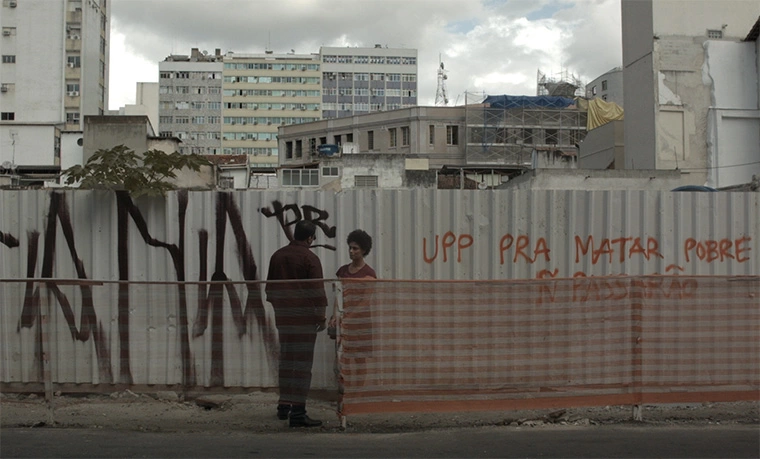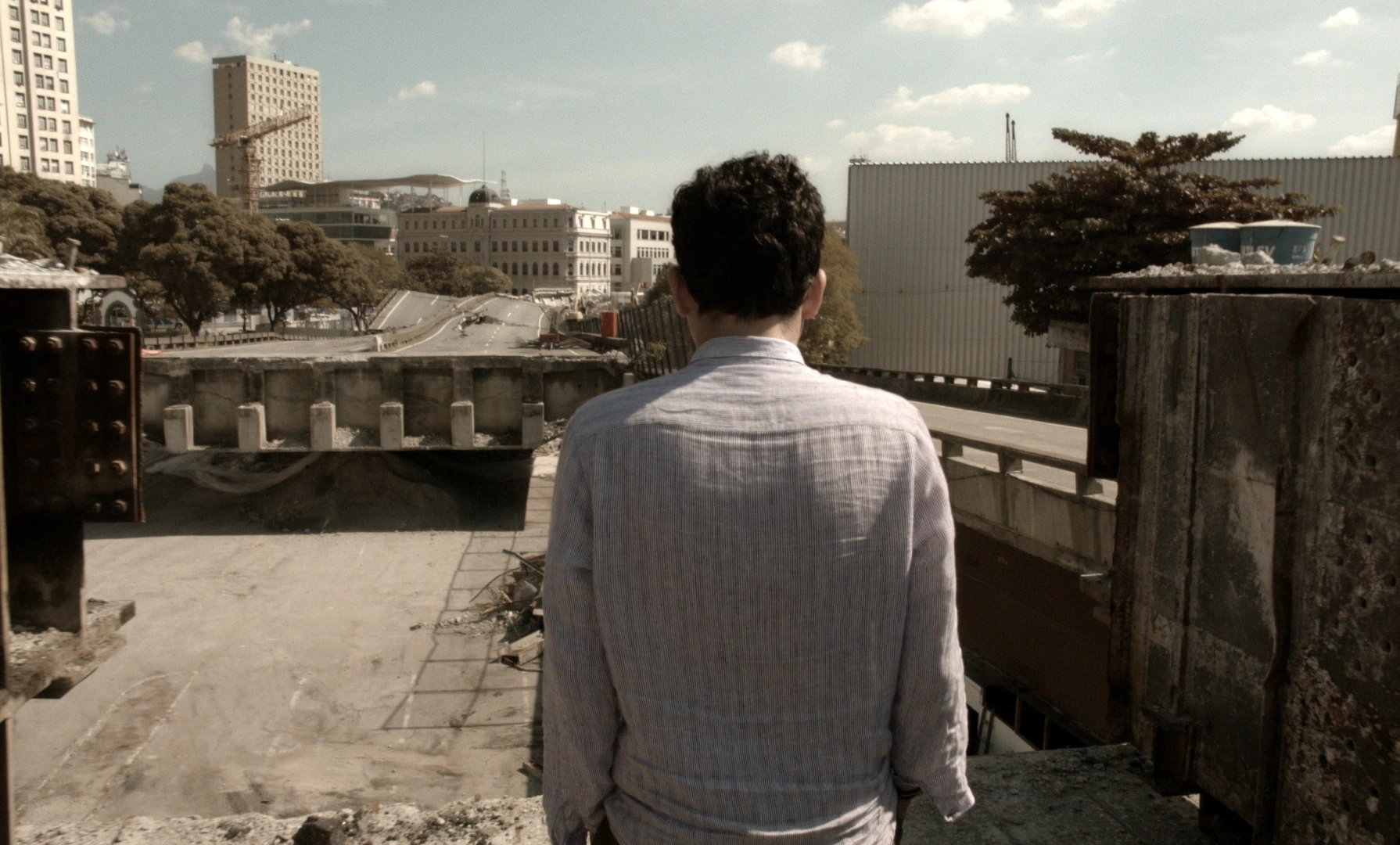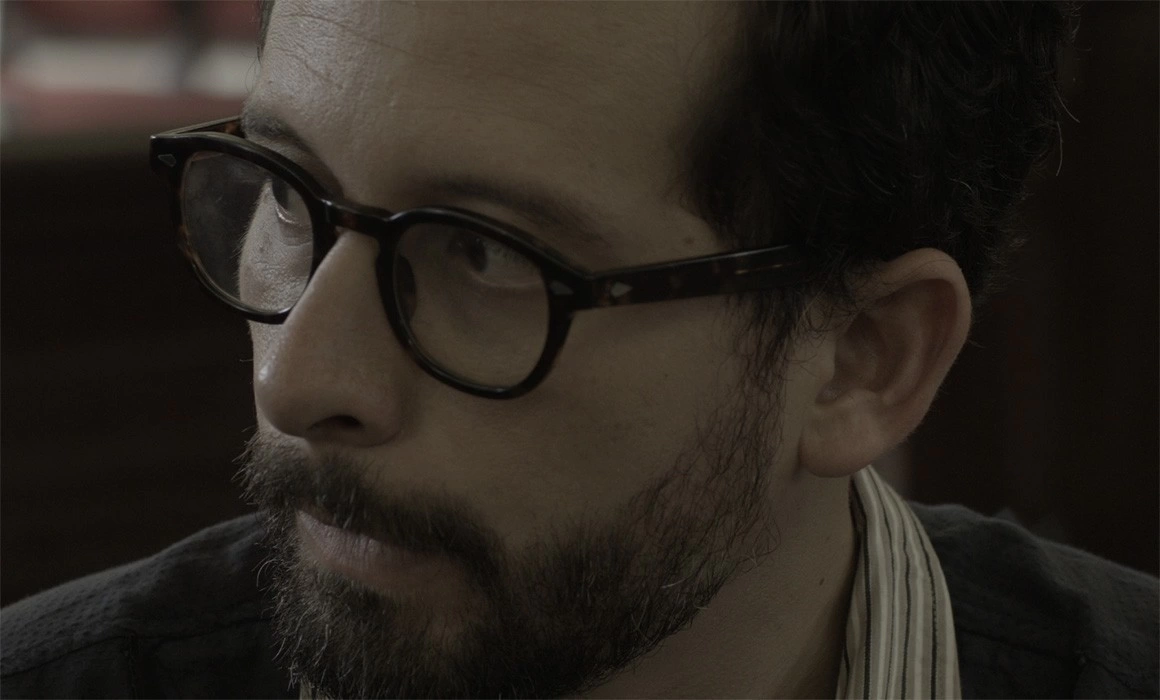I landed in São Paulo on the 31st of October last year. The police lady from the passport booth was called Dulcinea. That seemed like a good omen to me. My backpack came last, a huge silk worm, wrapped in pink plastic on the airport in Otopeni. Dizzy from ten hours of flight, I said to myself it’s alright if it doesn’t show up, I’ll get around without my backpack for a month in Brazil. It was raining cats and dogs over residential neighborhoods which looked identical, over deserted shopping malls, over palm trees and shady hovels, it was raining over the graffiti-covered walls, over kids who skated along Paulista Blvd, it was raining over a small march for immigrants’ rights, it was raining over the queue at the art museum and over the homeless people wrapped in blankets in front of the tribunal, it was raining over sad skyscrapers, it was raining over the monkeys hidden in the trees, it was raining over me; I’ve gone on vacation at the worst possible time and left behind a country who was getting ready to take to the streets and overthrow a government.
I would wake up in the morning at 5 due to the birds, totally different from ours, vague nightingales or more decent crows. Not even the bananas would fit my description about bananas; they were fatty and short and had a different taste. I wrote in my copybook “SP – like a chocolaty NY which melted in the sun and you put it in the fridge afterwards. It doesn’t have anything to do with how I know any city to look like”. I was lost.
The only thing which brought me with my feet back on the ground to some extent was the interview João Paulo Cuenca gave me, a young Brazilian writer whose novel, The Only Happy Ending for a Love Story Is an Accident (Polirom, 2015), I’ve read before getting on the plane. On my third Brazilian day, I had to get it together and find the way to the cinema where Cuenca’s debut film was showing, The Death of J.P. Cuenca. “I’m going to your death today”, I wrote him on Facebook. “I am going too”.
Cuenca is “the rising star of contemporary Brazilian literature” (says L’Express), one of the best American writers under 39 years of age (says Hay Festival) and one of the most important young Brazilian novelists (says Granta). He wrote five novels, a play and a TV show, he made a film, has a permanent column in Brazil’s largest newspaper, Folha de São Paulo. I’ve read The only happy ending for a love story is an accident because I was due to depart for Brazil and I wanted to check out Brazil’s young literature. Only thing is, the novel’s action takes place in Tokyo, and the love story ending in an accident is totally un-Brazilian, cruel, cold and dark. I was expecting the apathy of Copacabana and what I found was catastrophic love, carefully overseen by the Harmonious Fugu Association. If you’re not afraid of surrealism, black oddities and sharp poetry, then go ahead and read Cuenca’s novel. If you are, then read this interview. Although I wouldn’t bet that things are very clear here either. It’s a film about Cuenca’s death, starring Cuenca himself. It’s a film in which Cuenca is looking for the dead individual who was identified in 2008 as being Cuenca, while the writer was in Europe. It’s a film about the way in which Brazil permanently reconstructs its identity, placing brick over brick over dead bodies.
The documentary was shown at the São Paulo International Film Festival; those were the first screenings, so J.P. Cuenca would go there once in a while to check out the audience’s reactions. In the breaks between his partings, we spoke about Brazil, identity and death. “We felt surprisingly good; like two old fish merchants drinking tea.”*
*excerpt from The Only Happy Ending for a Love Story Is an Accident

Let’s start with the beginning. In fact, with the end. What happened in 2008?
An individual… in fact, a corpse, was identified by the police with the aid of my birth certificate, a document which I never lost. On that day I was in Rome, at the party that followed the debut of my book’s Italian translation, The Mastroianni Day. Basically, I was living the dream of any South American writer, of being translated into Italian, in a small circulation, to be fair. On that night I got drunk, smoked hashish, met a very beautiful Italian woman. And while I was happy, my name, my double, was dying in a squat in Rio. The story begins on that day.
What was your reaction after you found out? In the film, you seem very relaxed. Weren’t you panicked at all?
I panicked, of course. In the film, the character I portray is also panicked, but he doesn’t show it. He’s rather more passive, a complete victim of the circumstances. He’s completely lost in this mysterious tale, he’s lost in the back yard of a construction site, in the city that changes. In short, he’s lost. And I suspect I was too.
At one time, a feminine character asks: “Who is he in this story?”. I believe that’s a very important question. Who are you in this story?
I’m there because it was the only way to create this type of experience and this space. The reason isn’t that someone stole my identity in order to die. The reason is the place. My identity was stolen in the Lapa neighborhood in Rio, in a building like a skeleton of apartments. In a way, my identity theft is part of the city’s identity crisis. Lapa is a historic neighborhood, samba began in Lapa. Many Brazilian poets and writers lived there. It’s symbolic that I died there, so I became entirely obsessed by that address, by that place. It never even crossed my mind to use a professional actor to play my part. Furthermore, I’ve always thought that no one can be more pitiful than me. I wanted full control over this portrait. The portrait of the city and the portrait of me within the city.
Did you know from the onset that you wanted to write a book and make a film starting off from the same subject?
Not at all. In the beginning, I was in total denial. I was working on a book and I started thinking about this story obsessively at one time. I hired a private eye, I started going to the neighborhood where this fellow died, to see the building, have coffee around there, it became an obsession. All of my novels start off with something I can’t escape from. But in the beginning I was afraid. It took a few months, almost a year, before I’ve said OK, it’s time I did something with this.
Did anyone tell you you’re being self-centered, that you like the exposure?
Yes. People accuse me of all sorts of stuff, but, usually, after they see the film, they stop. My self-portrait is so ridiculous and pitiful, that it’s not a compliment for me. Right from the start, one of the goals was to not (unknown Portuguese word, editor’s note)… how should I put this? If someone in the film is exposed or ridiculed, then that’s me. And it sucks even more in the book. There’s a phrase from Machado de Assis which goes like this: “The great virtue of a dead person is honesty”. In all fairness, I must expose myself more than anybody else. The main topic of the film isn’t me, it’s not even the case itself. The topic is something else. I’m merely using myself as an excuse to create this experience. I’m a guide of sorts in this place. And to put some questions about this place and this time and about identity. What makes you be the person that you are?

It’s pretty clearly stated in the film that identity is extremely prone to being fragmented, that it’s made out of all sorts of little pieces that don’t always fit with one another. You were born in Rio, you live in São Paolo, and you travel to Europe a lot. You look made out of fragments yourself. Do you ever feel more European than Brazilian?
That’s a very interesting question. A critic even wrote that I’ve made a Romanian movie. I think he wrote that because the POV I’m using is completely foreign. It’s as if an alien were filming the city of Rio and it would be the first time they saw it. That’s how I am in this country.
How come?
I don’t know. I don’t want to say I’m a bizarre guy, but I do want to say I always found everything bizarre. And that was straight from the beginning. So I try to maintain this way of looking at things, at reality, particularly in this country. Around here, people get used to anything. Brazilians are highly acceptant of anything. Things are changing, but very slowly. Throughout history, we’ve accepted everything, a long string of iniquities. Slavery wasn’t abolished until 1888. And then, the same social fabric was kept. We simply accept that cops kill black children in favelas without suffering any consequences. And you don’t see people outside protesting because of this. So I declare myself content with the fact that I don’t feel comfortable in this country. This process of building and destruction of a city, of a place which, for me, defines Brazilian cities and even the whole country, is one of the main aspects of my film. Because I didn’t get used to this state of things, I’ve managed to film the way I did. In Rio, I’ve lived in 16 different places in 35 years. Out of three or four of them I had to move because the building was due to be demolished. Same as in the film. I’m obsessed with this process of destruction and rebuilding.
What kind of identity does the city get from this process that you speak of?
People are thrown out of their houses. And that’s since the time of the Portuguese. They took the Indians’ lands and then, at the beginning of the 19th century, when the royal family came with 20.000 Portuguese noblemen, they all moved in overnight, because they moved the Portuguese Empire’s capital from Lisbon to Rio (they were running away from Napoleon). So they took tens of thousands of homes in Rio, painted RP on the walls (Royal Prince) and people had to abandon their homes so that the noblemen could move in. At the beginning of the 20th century, a mayor named Pereira Passos did the same with the city center: he destroyed tens of thousands of homes in order to build boulevards. And what did we do for these people? Nothing. We didn’t compensate them, they were forced to build huts in favelas. More recently, the same type of territorial occupancy is happening due to the World Championship and the Olympiad. It’s the worst possible kind of capitalism, capitalism for a handful of people. The state’s muscle, bought for heavy sums of money, is making urban policies for the construction companies, not for the people. This is, in fact, the film’s core. It’s not shown explicitly, it’s not uttered. Sometimes, when I ask about the former residents, about how they were kicked out of their houses, you understand what it’s about.
It seems like it’s history repeating endlessly.
Yes. It’s as if things were happening in a never ending present tense. Remember the scene with the girl who uses a rock to hit the iron fence? That area is Rio’s harbor. Slaves came in through there. Between the 18th and 19th century, Rio was the world’s capital for slave trafficking. To this day, there are slaves buried there. The press doesn’t talk about it much. With every new construction in the harbor area, they always dig up bones. It’s like Poltergeist. We’ve built Rio de Janeiro on a cemetery of slaves, of Africans. I’ve always had this in my mind. It occurs more in the book, rather than in the film. Especially in the second part, when things get more dreadful, more peculiar, you feel there’s something buried deep.
And you lose control over the meaning.
Yes, and you have the black woman dominating the white dumb man from the middle class. It’s like revenge. It represents a lot of things, and this is one of them. I had in mind the symbolism of the scene where a black woman uses a rock (the rock is of a certain significance in African religions). There was a time when there were seven slaves for every white person. And the military police in Rio, which rules over favelas and kills black people, was established in 1808 with the purpose of controlling and catching runaway slaves. Now they do the same with their descendants.

You grew up in Rio. How different is the city of your childhood from the city nowadays?
Rio was always a very, very violent city, all the while maintaining this completely distorted image of itself, that of a beautiful city, a place of happiness. In fact, it’s an inferno. I think it hasn’t changed a bit, maybe it only became worse. You’ll see, Rio has this dictatorship of happiness. You have to look happy. To appear highly successful. Everything is on the surface.
Is this why you don’t live there anymore?
Yes. In São Paulo I have more room to be who I want to be. It’s a real city. In Rio, we still have to deal with the hierarchy inherited from the Portuguese, based on privileges, personal relations, all that matters is who you know, who’s your godfather, who you’re connected with in those networks of power, the way you look. That shows in the film as well. The way the character walks, the way he interacts with people shows that he’s in no way comfortable.
I have two more questions and I’ll let you go and watch the film’s ending. You’re already on your fifth novel. The first one came out in 2003. Did anything happen meanwhile?
When you’re a writer, you have to lead a battle to make it back to that place where you’re not a public writer. You’re just a man writing in a room. There are writers who publish their first novel, it’s successful, they become very attached to this success and keep repeating it until they die. There are writers who are very good at repeating themselves over and over again. I always try to create new experiences for me and for the reader. But mostly for me. That’s why my novels are so different from one another. I’m constantly learning how to write novels. The only reason I write them is that I don’t know how to write them and I don’t know what’s going to happen and I’m completely lost. But after I’ve finished writing, everything I’ve learned is valid only for that particular novel. That’s the way it’s been so far. I don’t know about the next one. Although, I don’t even know if there’ll be a next one, maybe I’ll get hit by a bus.
How would you like to die?
I think I’ve filmed a very beautiful way to die.
Cuenca laughs, I laugh, because the final scene is an apocalyptical sex scene. I turn off the tape recorder; I ask Cuenca what else is there to see in São Paulo. Downtown and the Chinese neighborhood, he says. Downtown I’m swallowed by a Day of the dead parade. I’m swimming among zombies, vampires, knights of darkness and killer nurses. The Chinese neighborhood is deserted. You could say they all ran and hid in a bombproof shelter. The following day I’m flying to Rio, the city built over a cemetery of slaves. I’m going to attend a literature festival in a favela. But about that, some other time.




